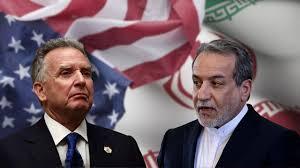
He made the remarks on the sidelines of the international conference “International Law Under Assault: Aggression and Defense” in Tehran.
Speaking to reporters, Khatibzadeh said that the United States has shown no genuine readiness for result-oriented talks in recent months. “The Islamic Republic of Iran has exerted every effort in recent months to prevent escalation and war. What occurred instead reflected misperceptions and illusions,” he said.
He explained that Washington seeks to achieve its objectives through theatrical diplomacy rather than real negotiation.
Iran has always been ready to engage under the guidance of Leader of the Islamic Revolution Ayatollah Seyyed Ali Khamenei, prioritizing the highest national interests, Khatibzadeh added.
The deputy foreign minister elaborated on his use of the term “armed negotiation”, saying that given that the US has deployed its full military arsenal and threat posture against other countries, any negotiation under such conditions cannot be impartial. “It is not a neutral negotiation. What matters is careful attention to the intentions and actions of the counterpart,” he said.
Khatibzadeh stressed that Iran’s approach would combine caution with readiness. “An armed negotiation means that we not only have no trust in the other side but are fully prepared to take effective measures against any deception.”
He also highlighted Iran’s recent efforts to raise global awareness and build alignment against US and allied hegemony, noting that militarization worldwide has reached unprecedented levels and must be halted, according to Mehr.
Khatibzadeh’s remarks follow a period of heightened tensions between Iran, the United States, and Israel. The statement reflects Tehran’s stance that, while diplomacy remains a tool, negotiations cannot occur under conditions of coercion or unilateral military threat.
This position complements Iranian Foreign Minister Seyed Abbas Araghchi’s recent statements emphasizing that renewed calls for dialogue have begun, but that negotiations must respect mutual interests, logic, and good faith.
On June 13, Israel launched a blatant and unprovoked aggression against Iran while Washington and Tehran were in a process of nuclear negotiations. The Israeli attack triggered a 12-day war that killed at least 1,064 people in the country, including military commanders, nuclear scientists, and ordinary civilians.
The United States also entered the war by bombing three Iranian nuclear sites in a grave violation of international law.
In response, the Iranian Armed Forces targeted strategic sites across the occupied territories as well as the Al-Udeid air base in Qatar, the largest American military base in West Asia.
On June 24, Iran, through its successful retaliatory operations against both the Israeli regime and the US, managed to impose a halt to the aggression.